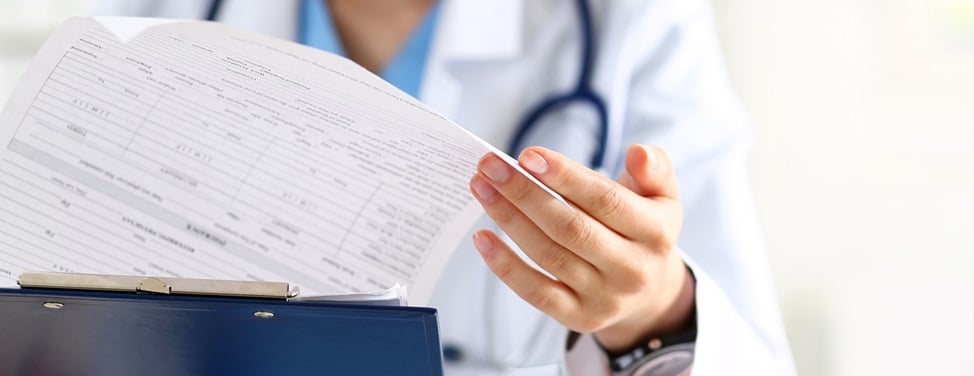
Your Body Résumé
Imagine going to a job interview and being asked to describe every job you've ever had – noting places, dates, titles and accomplishments. It would be overwhelming! That's why we use résumés: to organize all our information in one simple document.
You can do something similar for doctor visits by creating a body résumé.
What is a body résumé?
A body résumé is a short summary of your health history and current medications. Like a job résumé, it should be succinct and easy to make sense of, organized with bullet points and dates.
Bringing your body résumé to medical appointments can save you time filling out forms and help prevent medical errors. It allows you and your provider to fully focus on your current concerns and any pressing medical issues.
What should my body résumé include?
Here are the main things that should appear:
- Name and Date of Birth
- Medical history. This should cover the basics, including allergies; significant childhood illnesses; current medical conditions; lifestyle factors, such as whether you smoke, drink alcohol or use recreational drugs; and recurrent or ongoing problems, such as headaches, digestive issues, arthritis or depression. List past immunizations, such as for flu, COVID-19, tetanus and measles.
- Surgical history. Include any surgical procedures, even small ones like biopsies. Note whether you experienced complications or problems with healing.
- Accidents and injuries. Briefly describe broken bones, sports injuries, major car accidents and any other events in which you were hurt. Include the year or approximate date.
- Test results. Give the dates and results of important lab tests, such as bloodstream cholesterol or prostate-specific antigen (PSA) levels, as well as screening tests, such as mammograms, Pap tests and colonoscopies. If results were normal, you can write "WNL" (within normal limits).
- Safety habits. Let your provider know whether you always use a seat belt or bike helmet, and whether you regularly test the smoke detectors in your home. Note whether you own a gun.
- Social history. Write down your current relationship status (single, married, otherwise partnered), household members and occupation. If you have a history of alcohol or substance abuse or are a current drug user, include this information.
- Exercise habits. Describe your workouts or other physical activity. How many times are you active each week and how long is each session?
- Eating habits. Note whether you follow any special diet (vegetarian, vegan, keto). List any medications or measures you've taken to manage your weight.
- Medications and supplements. List all current prescriptions, over-the-counter meds, vitamins and herbal supplements.
- OB-GYN history (for women). Note the age when your periods started and their regularity; the number of pregnancies, miscarriages, abortions and births you've experienced; the delivery method for any children (such as vaginal birth or cesarean section); and your birth control history, use of hormone replacement therapy and any gynecological issues.
- Family history. List medical conditions, allergies, lifestyle habits and medications for all close biological relatives for whom you have information – such as your grandparents, parents, siblings, siblings' children and your children. Knowing your family's health background helps your provider pick up on inherited risks.
Keep your body résumé handy
Store your body résumé somewhere easy to access, such as on your phone or as a printout in your wallet or purse. Bring it to every appointment and update it regularly.
UCSF Health medical specialists have reviewed this information. It is for educational purposes only and is not intended to replace the advice of your doctor or other health care provider. We encourage you to discuss any questions or concerns you may have with your provider.














